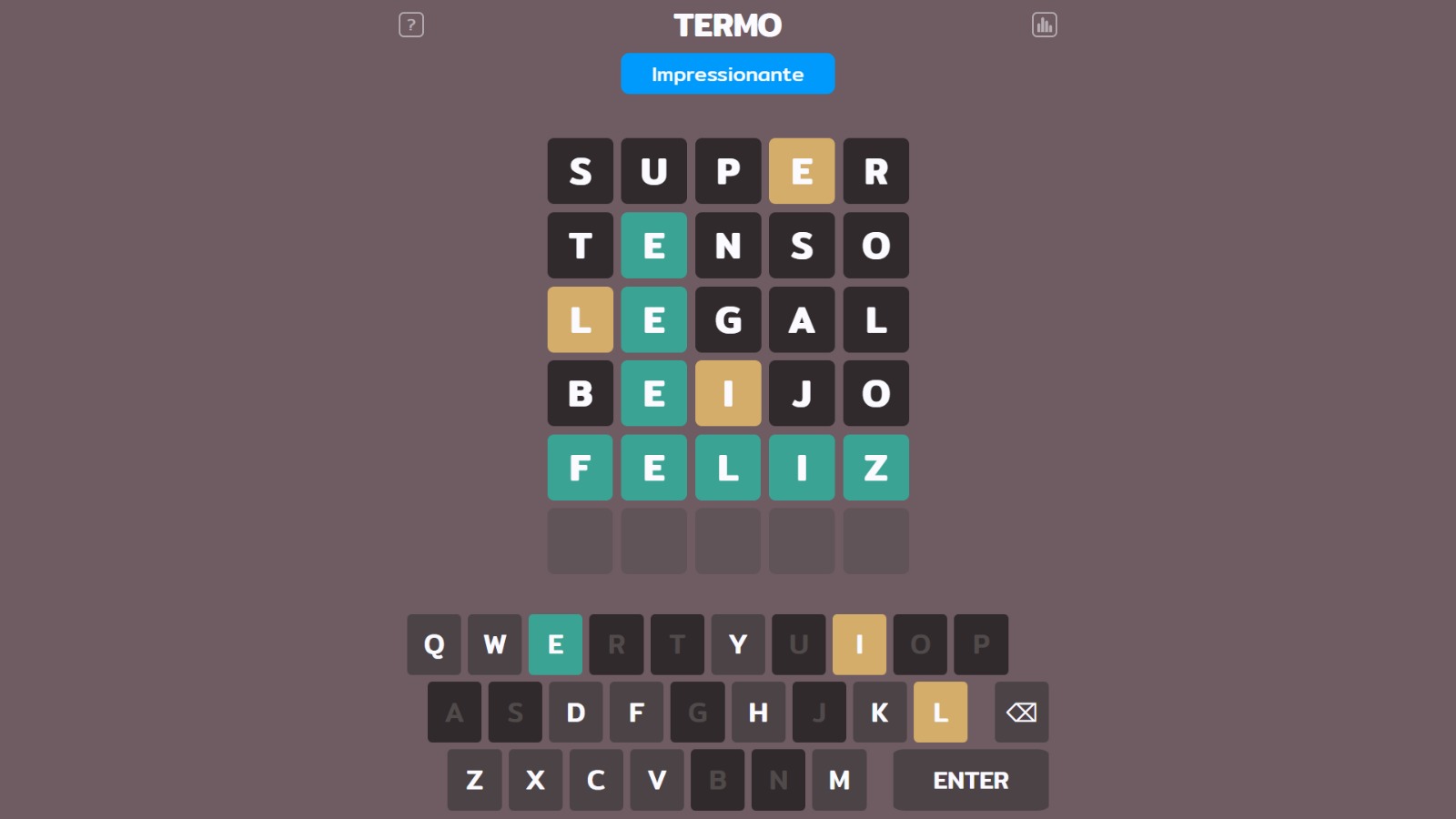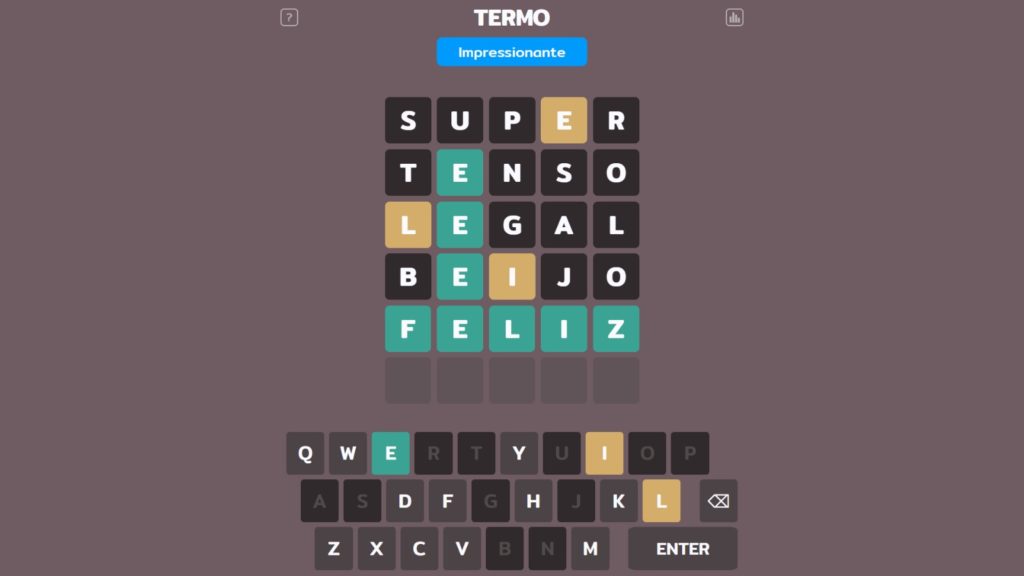نویسنده: AliBina
-

5 Ways to Master Russian Vocabulary Fast
If you want to speak and understand more, you’ll need to know more words. So today you’ll discover five ways to master vocabulary fast. But first, if you don’t yet have access to our language learning system, sign up for a free lifetime account right now. Just click the link in the description to get your free lifetime account. Before we jump into how, just know that when you learn more words, you pretty much improve everything. Reading, writing, listening, and speaking. So it’s important to always be learning new words across a range of topics so that you can speak fluently in all situations. If you haven’t done so already, come up with a specific number of words you’d like to master a month and make that your monthly goal, like 30, 50, or even 100 words a month. Now, let’s get to the tips. First, use spaced repetition flashcards. Flashcards are the most popular way to learn, review, and master new words. And more specifically, spaced repetition flashcards. That’s because they have a proven learning method built in. Spaced repetition. Spaced repetition simply means you repeat what you’ve learned over a spaced period of time because that’s the best way to retain things. Meaning, if you learn a word on day one, you see it again in two days, then in four days, in eight days, and so on. The learning is spaced out over time, and the continued repetition helps push the word into your long-term memory so you never forget it. And that’s exactly what our spaced repetition flashcards do for you. You’ll find them in the vocabulary menu on the site. There, you can study the 100 core vocabulary, vocabulary from the lessons, or our 2,000 core vocabulary list. Second, immerse yourself in conversations and conversation lessons. Another powerful way to pick up new words and phrases is to immerse yourself in the language. That way, you’ll always pick up new words. And on top of that, you’ll learn the words in the context of everyday conversations instead of learning them one by one. So, if you’re taking the lessons inside our system, in every lesson, you hear a conversation between native speakers. Then our teachers slow it down, explain every word and grammar rule so that you understand it all. And that conversation is repeated three times in total, so you’ll remember it better. So you’re not just listening to language that’s way above your level and not understanding. You grow to understand it because everything is explained right after. You can also listen to the dialogue tracks that give you just the conversation of that lesson without the translations, so you can immerse yourself and just listen. This is one of the best ways to expose yourself to conversation. Actually understand them, even if you don’t understand anything at first, and reinforce all the words you’ve learned. On top of the lessons, you can also immerse yourself in the target language by watching TV shows and listening to music. But, unlike the lessons, you won’t get the language explained, and this approach may be too hard for beginners. But, if you’re at an upper intermediate level, or above where you can learn through context and understand most of it, then this method can work just as well. Reading is another way you can immerse yourself in the language and boost your vocabulary, because you’ll always come across new words. But, what should you read? And, how do you find easy material for your level? Because, what’s the point if it’s too hard for you? With our program, you can find extensive reading books inside the lesson library. These are quick and easy books, from absolute beginner level up to intermediate, that you can finish in a few minutes. And, extensive reading is simply a strategy where you read and finish as many books as possible. At the absolute beginner level, these are simple one or two sentence per page books, making it easy for you to read through and pick up new words. Another way to memorize words fast is by learning songs in your target language. You can make a monthly goal to memorize one to three songs you like in your target language. Just search for the lyrics to a song you like, and as you listen to the song, read the lyrics. This can help you connect the sounds you’re hearing with the characters or the letters you’re reading. Remember, the key is to find a fun way to read every day. This will help you improve your vocabulary. Fourth, get quizzed on vocabulary regularly. I know, no one likes quizzes and tests after experiencing them in school. But, getting tested on what you’ve learned is actually one of the best ways to remember what you learn and improve your memory. This is a proven learning method called Active Recall. All it means is when you try to remember something, you actually start to remember it better. So, if you’re trying to remember the meaning of a word on a test, that’s when your memory gets stronger. That’s when you’re flexing your brain muscles, or rather, neurons. So, how can you do it? If you’re using the flashcards that I mentioned earlier, flashcards do that for you. They test you on the meanings of the words. You can flip the card over to see if you got the word correct or not. So, be sure to use flashcards. Next, if you’re taking the lessons and following the learning pathway in our program, you’ll automatically get tested after every few lessons. Just follow the pathway, take the lessons, and testing is done for you. You’ll get multiple choice assessments after every few lessons that test you on the words and grammar you learned. That way, you won’t forget what you’ve learned as you make your way down the pathway. Fifth, get new vocabulary and phrases sent to you automatically, the lazy way to learn words. So far, all of the methods mentioned are extremely powerful at helping you learn new words. But, they all require work. And if you’re lazy, busy, or just new to language learning, chances are there will be days when you won’t want to drill flashcards or read. And that’s a problem because language learning needs to become an automatic habit. And if you’re not doing it automatically without thinking, you’ll forever struggle with trying to learn. The good news is that you can get new words and phrases sent to you automatically every day so that you don’t have to lift a finger and boost your vocabulary in the process. And you can do that with our free Word of the Day service where every day we email you a new word along with sample sentences. This is the easiest and the laziest way to boost your vocabulary. And it takes less than a minute because all you have to do is glance at the word and you’re done. But the best part is you automatically get new words every single day so that your vocabulary is always improving. The system is automatic. All you have to do is join it. And as a side bonus, it helps you create a language learning habit because you’re automatically learning new words. On top of that, you’ll also get timely vocab and phrase lists every week via email. If it’s wintertime, you’ll get winter-related words and phrases. If Halloween is coming up, you’ll get words for Halloween. It’s that simple. Again, all of this is done and sent automatically if you’re a member. That way, you don’t have to go chasing down material or trying to figure out what to do and how to learn. So, to recap, use flashcards. Immerse yourself in conversations and conversation lessons. Read every day. Get quizzed on vocabulary regularly. Get new words sent to you automatically. These tips are fun and effective ways to help you reach your vocabulary goals a bit faster. So, if you want to learn the language and get access to these learning tools and our learning system, sign up for a free lifetime account right now. Just click the link in the description to get your free lifetime account. -

3 steps) – Cyber Italian Blog

Conversare rilassati e senza paura Tutti gli studenti vogliono conversare in italiano, ma la velocità della lingua parlata e la difficoltà di capire a volte creano molto stress.
La conversazione in italiano ti stressa?All students want to converse in Italian, but the speed of the spoken language and the difficulty of understanding sometimes create a lot of stress.
Does conversing in Italian stress you out?To practice Italian this week we invite you to listen and test…
PRACTICE HERE: Italian/English VersionPara practicar el idioma italiano esta semana te invitamos a escuchar y probar…
PRACTICA AQUÍ: Versión Italiano/EspañolaPicture courtesy of Andrea Piacquadio on pexels
-

5 Ways to Master Dutch Vocabulary Fast
If you want to speak and understand more, you’ll need to know more words. So today you’ll discover five ways to master vocabulary fast. But first, if you don’t yet have access to our language learning system, sign up for a free lifetime account right now. Just click the link in the description to get your free lifetime account. Before we jump into how, just know that when you learn more words, you pretty much improve everything. Reading, writing, listening, and speaking. So it’s important to always be learning new words across a range of topics so that you can speak fluently in all situations. If you haven’t done so already, come up with a specific number of words you’d like to master a month and make that your monthly goal, like 30, 50, or even 100 words a month. Now, let’s get to the tips. First, use spaced repetition flashcards. Flashcards are the most popular way to learn, review, and master new words. And more specifically, spaced repetition flashcards. That’s because they have a proven learning method built in. Spaced repetition. Spaced repetition simply means you repeat what you’ve learned over a spaced period of time because that’s the best way to retain things. Meaning, if you learn a word on day one, you see it again in two days, then in four days, in eight days, and so on. The learning is spaced out over time, and the continued repetition helps push the word into your long-term memory so you never forget it. And that’s exactly what our spaced repetition flashcards do for you. You’ll find them in the vocabulary menu on the site. There, you can study the 100 core vocabulary, vocabulary from the lessons, or our 2,000 core vocabulary list. Second, immerse yourself in conversations and conversation lessons. Another powerful way to pick up new words and phrases is to immerse yourself in the language. That way, you’ll always pick up new words. And on top of that, you’ll learn the words in the context of everyday conversations instead of learning them one by one. So, if you’re taking the lessons inside our system, in every lesson, you hear a conversation between native speakers. Then our teachers slow it down, explain every word and grammar rule so that you understand it all. And that conversation is repeated three times in total, so you’ll remember it better. So you’re not just listening to language that’s way above your level and not understanding. You grow to understand it because everything is explained right after. You can also listen to the dialogue tracks that give you just the conversation of that lesson without the translations, so you can immerse yourself and just listen. This is one of the best ways to expose yourself to conversation. Actually understand them, even if you don’t understand anything at first, and reinforce all the words you’ve learned. On top of the lessons, you can also immerse yourself in the target language by watching TV shows and listening to music. But, unlike the lessons, you won’t get the language explained, and this approach may be too hard for beginners. But, if you’re at an upper intermediate level, or above where you can learn through context and understand most of it, then this method can work just as well. Reading is another way you can immerse yourself in the language and boost your vocabulary, because you’ll always come across new words. But, what should you read? And, how do you find easy material for your level? Because, what’s the point if it’s too hard for you? With our program, you can find extensive reading books inside the lesson library. These are quick and easy books, from absolute beginner level up to intermediate, that you can finish in a few minutes. And, extensive reading is simply a strategy where you read and finish as many books as possible. At the absolute beginner level, these are simple one or two sentence per page books, making it easy for you to read through and pick up new words. Another way to memorize words fast is by learning songs in your target language. You can make a monthly goal to memorize one to three songs you like in your target language. Just search for the lyrics to a song you like, and as you listen to the song, read the lyrics. This can help you connect the sounds you’re hearing with the characters or the letters you’re reading. Remember, the key is to find a fun way to read every day. This will help you improve your vocabulary. Fourth, get quizzed on vocabulary regularly. I know, no one likes quizzes and tests after experiencing them in school. But, getting tested on what you’ve learned is actually one of the best ways to remember what you learn and improve your memory. This is a proven learning method called Active Recall. All it means is when you try to remember something, you actually start to remember it better. So, if you’re trying to remember the meaning of a word on a test, that’s when your memory gets stronger. That’s when you’re flexing your brain muscles, or rather, neurons. So, how can you do it? If you’re using the flashcards that I mentioned earlier, flashcards do that for you. They test you on the meanings of the words. You can flip the card over to see if you got the word correct or not. So, be sure to use flashcards. Next, if you’re taking the lessons and following the learning pathway in our program, you’ll automatically get tested after every few lessons. Just follow the pathway, take the lessons, and testing is done for you. You’ll get multiple choice assessments after every few lessons that test you on the words and grammar you learned. That way, you won’t forget what you’ve learned as you make your way down the pathway. Fifth, get new vocabulary and phrases sent to you automatically, the lazy way to learn words. So far, all of the methods mentioned are extremely powerful at helping you learn new words. But, they all require work. And if you’re lazy, busy, or just new to language learning, chances are there will be days when you won’t want to drill flashcards or read. And that’s a problem because language learning needs to become an automatic habit. And if you’re not doing it automatically without thinking, you’ll forever struggle with trying to learn. The good news is that you can get new words and phrases sent to you automatically every day so that you don’t have to lift a finger and boost your vocabulary in the process. And you can do that with our free Word of the Day service where every day we email you a new word along with sample sentences. This is the easiest and the laziest way to boost your vocabulary. And it takes less than a minute because all you have to do is glance at the word and you’re done. But the best part is you automatically get new words every single day so that your vocabulary is always improving. The system is automatic. All you have to do is join it. And as a side bonus, it helps you create a language learning habit because you’re automatically learning new words. On top of that, you’ll also get timely vocab and phrase lists every week via email. If it’s wintertime, you’ll get winter-related words and phrases. If Halloween is coming up, you’ll get words for Halloween. It’s that simple. Again, all of this is done and sent automatically if you’re a member. That way, you don’t have to go chasing down material or trying to figure out what to do and how to learn. So, to recap, use flashcards. Immerse yourself in conversations and conversation lessons. Read every day. Get quizzed on vocabulary regularly. Get new words sent to you automatically. These tips are fun and effective ways to help you reach your vocabulary goals a bit faster. So, if you want to learn the language and get access to these learning tools and our learning system, sign up for a free lifetime account right now. Just click the link in the description to get your free lifetime account. -

Free Russian Gifts of the Month – June 2025
Access your free language gifts right now before they expire. First up, the 50 adjectives to describe your personality PDF workbook. If all you can say is nice and happy, it’s time to boost your vocabulary. And this PDF workbook gives you 50 adjectives and writing exercises inside. Second, the giving the time conversation cheat sheet. If someone asks you for the time in your target language and your brain flatlines, this cheat sheet is for you. You’ll learn how to tell and ask for the time with the exact lines to say. Download it for free right now. Third, phrases for talking about your summer plans. You’re probably not fluent enough to talk about your summer yet, and that’s why this lesson will get you fluent, at least enough to talk about your summer. Fourth, 25 phrases for agreeing and disagreeing. Do you agree that learning a language is easy? And can you say, I agree or I disagree in your target language? If not, this one-minute phrase lesson is for you. And last but not least, the app that puts real native speakers into your ear so you can listen and learn from native conversations. The Innovative Language Learning app gives you bite-sized conversation lessons where you listen to conversations between real native speakers and then get everything explained so you can speak and understand fast. Download it for free on Android, iPhone, and iPad. To get your free gifts of the month, click the link in the description below. And download them now before they expire. -

La luna e il passato remoto (The moon and the distant past) – Cyber Italian Blog

“Volere la luna” è un’espressione idiomatica italiana che indica un desiderio impossibile.
Molti studenti vogliono IMPARARE bene i VERBI italiani e questo fortunatamente È POSSIBILE.
È solo questione di esercizio.
Allora, canta con Loredana e pratica il passato remoto!
Vuoi imparare il passato remoto?“Volere la luna” (wanting the moon) is an Italian idiom that indicates an impossible desire.
Many students want to LEARN the Italian VERBS well and fortunately this IS POSSIBLE.
It is just a matter of practice.
So, sing with Loredana and practice the “passato remoto” (distant past)!
Do you want to learn the “passato remoto”?Picture courtesy of Mo on pexels
-

Turkish Explained #28 – Asking for Clarification – Part 2
Turkish Explained #28 – Asking for Clarification – Part 2
Source link -

Free Dutch Gifts of the Month – June 2025
Access your free language gifts right now before they expire. First up, the 50 adjectives to describe your personality PDF workbook. If all you can say is nice and happy, it’s time to boost your vocabulary. And this PDF workbook gives you 50 adjectives and writing exercises inside. Second, the giving the time conversation cheat sheet. If someone asks you for the time in your target language and your brain flatlines, this cheat sheet is for you. You’ll learn how to tell and ask for the time with the exact lines to say. Download it for free right now. Third, phrases for talking about your summer plans. You’re probably not fluent enough to talk about your summer yet, and that’s why this lesson will get you fluent, at least enough to talk about your summer. Fourth, 25 phrases for agreeing and disagreeing. Do you agree that learning a language is easy? And can you say, I agree or I disagree in your target language? If not, this one-minute phrase lesson is for you. And last but not least, the app that puts real native speakers into your ear so you can listen and learn from native conversations. The Innovative Language Learning app gives you bite-sized conversation lessons where you listen to conversations between real native speakers and then get everything explained so you can speak and understand fast. Download it for free on Android, iPhone, and iPad. To get your free gifts of the month, click the link in the description below. And download them now before they expire. -

10 Sad Words – RussianPod101
Всем привет(Vsem privet)! Hi, it’s Katyusha! And today our topic is Ten Sad Words. So sad! We still have to talk about it. Now, let’s begin! 1. грустный (grusnyy) “sad” “I can’t look at him; he is so sad!” Я не могу на него смотреть, он такой грустный! (Ya ne magu na nevo smatret’, on takoy grusnyy.) 2. болеть (balet’) “hurt” “It hurts so bad.” Оно так болит. (Ano tak balit.) “Her back hurts so bad.” У неё очень болит спина. (U neyo ochen’ balit spina.) 3. неудачный (neudachnyy) “unfortunate” “This project was unfortunate.” Этот проект был неудачный. (Etat praekt byl neudachnyy.) 4. одинокий (adinokiy) “lonely” “She looked very lonely.” Она выглядела очень одинокой. (Ana vyglyadela ochen’ adinokay.) 5. мрачный (mrachnyy) “gloomy” “This movie is very gloomy.” Этот фильм очень мрачный. (Etat fil’m ochen’ mrachnyy.) 6. несчастный (neshchasnyy) “miserable” “You look so miserable; what happened?” Ты выглядишь таким несчастным, что случилось? (Ty vyglyadish takim neshchasnym, shto sluchilas’?) 7. потрясённый (patryasyonnyy) “shocked” “I was shocked when I heard the news.” Я был так потрясён, когда услышал новости. (Ya byl tak patryasyon, kagda uslyshal novasti.) 8. разочарованный (razacharovannyy) “disappointed” “I was very disappointed with what you did.” Я была очень разочарована тем, что ты сделал. (Ya byla ochen’ razacharovana tem, shto ty sdelal.) 9. сердитый (serdityy) “angry” “Don’t be so angry at me.” Не сердись на меня так. (Ne serdis’ na menya tak.) 10. обескураженный (abeskurazhenyy) “discouraged” “I felt discouraged when she said that to me.” Я был обескуражен, когда она мне это сказала. (Ya byl abeskurazhen, kagda ana mne eta skazala.) It was me, Katyusha, and it was Ten Sad Words. Don’t cry! Don’t cry, stay with me. Thank you for staying with me Katyusha. And don’t forget to subscribe and check out RussianPod101.com. пока пока (paka-paka)! -

Wordle in Portuguese? | Portuguese Language Blog
Fala, pessoal. Tudo bom? If you’ve checked as redes sociais (social media) lately, you probably noticed some of your amigos e parentes (friends and relatives) sharing an enigmatic picture composed of tiny coloful quadrados (squares). I was intrigued myself, until a friend introduced me to the captivating Wordle.
The story behind it is quite touching, actually. The jogo (game) took the world by storm, although it was originally intended as love gesture designed by engineer Josh Wardle, who wanted to create something unique for his word-game-loving girlfriend. And it was somehow out of passion, in this case for the Portuguese language, that tech developer Fernando Serboncini came up with our very own version, Termo (term in English).
Como jogar | How to play
Termo works pretty much like Wordle does. Os jogadores (players) must find out a palavra certa (the right word) and they have seis tentativas (six attempts). They start out by typing any 5-letter-word into the grid. When they press ‘enter’, some letras (letters) might change. If they turn amarelo (yellow), it means that the letter belongs in the word, but it is na posição errada (in the wrong position). The ones that turned verde (green) both belong in the word and are in the right position. The cinzas (grey ones) do not belong in the word and should be avoided when you adivinhar (guess) again. So all you have to do is keep on trying until you get a resposta correta (the right answer). Simples assim!
It’s not just highly viciante (addictive), it’s also very educational too! And if you’re wondering whether your Portuguese nível (level) is good enough to suceed at (or have fun with) this game, maybe you could see it as an opportunity to expand seu conhecimento (your knowledge) by using an online dictionary. I would recommend Michaelis, Priberam or Dicio. And no, it’s not trapaça (cheating) if you’re still learning the language! It can help you conhecer novas palavras (get to know new words) while, well, increasing your chances of ganhar (winning) as well. No harm in that!
And don’t worry about desperdiçar seu tempo (wasting your time). New words are available only uma vez por dia (once a day), meaning that, no matter how tempting it is, you’ll only be able to play it once and then try again the next day. Feel like practicing Portuguese or testing your skills in the language? Hit the link below:
Want to learn more about Wordle? Don’t take my word for it! You can read what Gary has to say about it here:
And, of course, don’t forget to compartilhar (share) your results!


